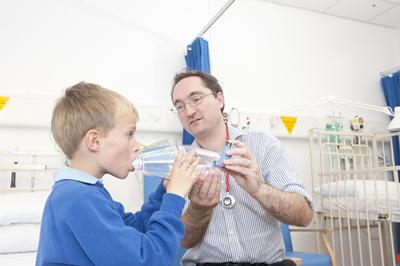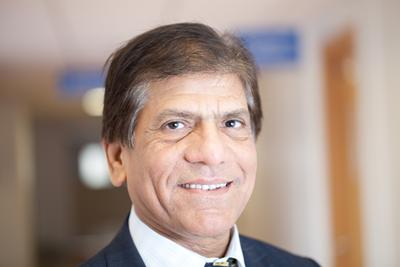New study to predict and prevent asthma

Southampton scientists are to delve deeper into the mechanisms behind what causes asthma.
Despite improvements in treatment, asthma remains the most common chronic disease of childhood and avoidable deaths from asthma occur every day. Current therapies do not cure asthma.
In a landmark study, researchers from the NIHR Southampton Respiratory Biomedical Research Unit, will analyse the genes which increase asthma risk.
Professor Hasan Arshad, of the University of Southampton and University Hospital Southampton, who leads the study, comments: “We know that asthma runs in families, and it often develops early in life. Several genes have been identified which increase asthma risk and we know that allergens and other environmental exposure activate or suppress the genes, a process known as epigenetics. However, we do not know how these genes operate, especially in cells that are important in allergic asthma.”
The $3.8 million study, which is being funded by the National Institute of Health and a collaboration with La Jolla Institute of Allergy & Immunology, San Diego, and David Hide Centre, Isle of Wight will be in two parts.
The first will track key epigenetic and allergy markers in blood samples from children from birth to six years of age and relate this to their development of asthma and allergy. By assessing epigenetic marks in a longitudinal cohort the team hope to reveal the ideal time and possible ways to prevent the condition. Findings will be used to develop drugs that could be used to prevent or treat asthma.

"Another outcome of this study is the ability to predict who will develop asthma so that efforts can be directed towards children most at risk,” says Professor Arshad. “Children often wheeze in early childhood and the majority of these children improve and do not develop asthma. But about a third develop asthma by the age of six. By that time it is too late to prevent it. It has not been possible to predict accurately who will develop asthma among these wheezy children. We believe that the epigenetic markers in immune cells will differentiate between children who do or do not develop asthma at an early age.”
The second part of the study is a continuation of the MAPS study, which treated children at high risk of asthma with an allergy vaccine, directed against a common allergen called house dust mite. The study showed that they had less allergy at 18 months. This new phase of the study will assess whether the vaccine had a lasting effect by analysing whether the epigenetic markers were erased by the vaccine.
Dr Vijayanand of La Jolla Institute added: “We are excited to collaborate with Southampton enabling a comprehensive investigation to identify the mechanisms that underlie the development of asthma, which would provide important information for future treatments. We also hope to be able to predict early in childhood who will develop asthma later in childhood.”
